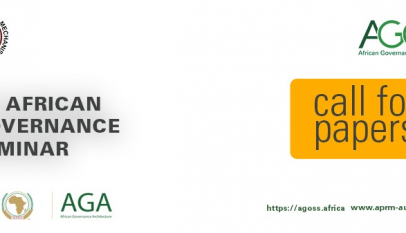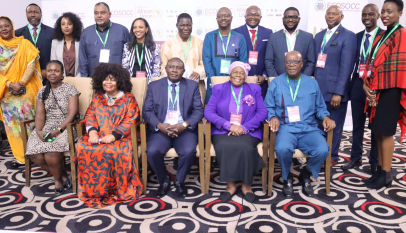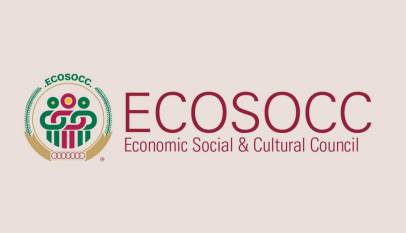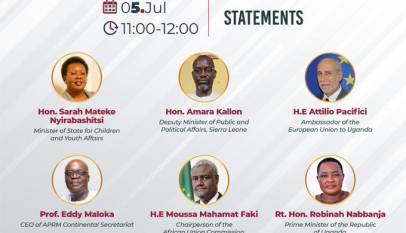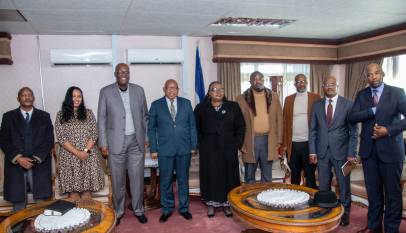Silencing the Guns in Africa: APRM launches regional youth webinar series
As a mark of their commitment to the African Union’s Silencing the Guns in Africa campaign, the continental secretariat of the African Peer Review Mechanism (APRM) and the APRM Youth Network, launched the APRM Youth Webinar Series on the Impact of COVID-19 on Political Governance, Peace and Security in Africa
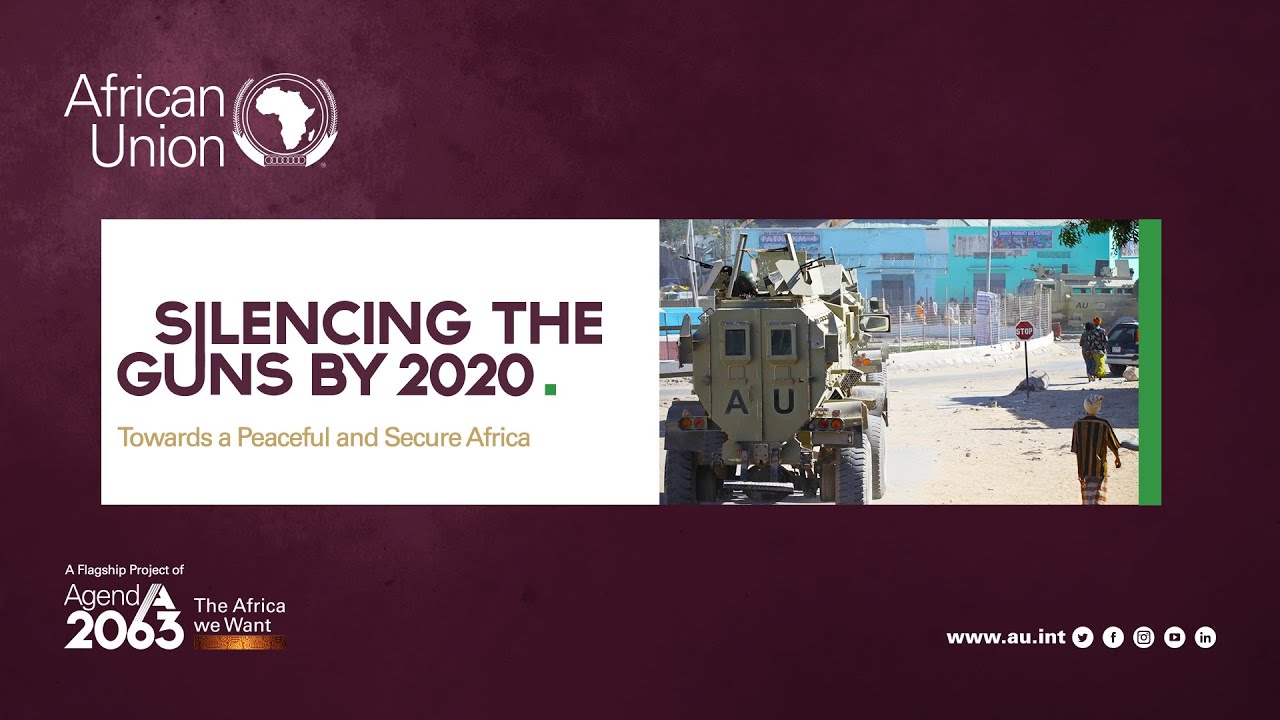
The regional webinar discussion series is seeking answers to key questions like whether or not COVID 19 is a multiplier of conflicts across each of Africa’s five regions: Southern, East, Central, North and West; what are the major drivers of conflicts in each of these regions; as well as whether or not these drivers are identified in the African Union Master Roadmap of Practical Steps to Silence the Guns in Africa.
The maiden edition of the webinar series held last week Wednesday focused on southern Africa; it sought to galvanize the voices and experiences of local actors around the impact of COVID-19 on political governance, peace and security in the region.
It would be recalled that APRM held its first-ever International Youth Symposium in July 2019, at N’djamena, Chad, under the theme: “The Youth as APRM driving force for good governance in Africa.” Discussions at the symposium focused on youth engagement in governance as well as inter-generational dialogues between government actors and young people from different parts of the continent.
By giving Africa’s youth more visibility in governance, peace and security processes, the APRM seeks to become one of the newest institutional champions for young people. Being the AU’s self-monitoring and peer review tool for promoting good governance at the level of Member States, APRM reviews and reports back to the AU on the situation of governance across its Member States, with the aim of fostering policy and practice so as to achieve political stability and sustainable development.
In his welcome remarks, Prof. Eddy Maloka, CEO of APRM’s continental secretariat said the Mechanism’s overall agenda was the realization of aspirations of the AU’s Agenda 2063. “This webinar series hopes to answer key questions on the root causes of crisis across the regions and ways to resolve them,” he said.
Speaking at the webinar, Mr Patson Malisa, the deputy presiding officer of the African Union Economic, Social and Cultural Council (ECOSOCC), called for the preservation of the mission of Agenda 2063 through the upholding of its goals and aspirations at all levels. ECOSOCC is a technical advisory organ of the AU composed of different social and professional groups i.e Non-State Actors (NSAs), established under the provisions of Articles 5 and 22 of the AU’s Constitutive Act, as the vehicle for building a strong partnership between African governments and all segments of the African civil society.
In addition, Ms. Susan Mwape, a member of the APRM Youth Network cum executive director of Common Cause Zambia (CCZ), a Zambian nonprofit focused on promoting citizens participation in governance processes, urged African youths to leverage the opportunity provided to them by the APRM to contribute to governance processes in their regions, particularly the Mechanism’s efforts towards resolving conflicts across the continent’s five regions.
While speaking at the webinar, Dr Vasu Gounden, executive director of the African Centre for the Constructive Resolution of Disputes (ACCORD), focused on bringing about creative solutions to the challenges posed by conflicts on the continent, said significant parts of Africa were reaching a dangerous tipping point and hypothesized that addressing the root causes of conflicts and achieving conflict transformation in Africa would take between 20 to 40 years.
Dr Vasu described lack of job opportunities, constitutional crises, increased poverty levels, terrorism as well as scramble over scarce resources, as the major drivers of conflicts and terrorism on the continent. “COVID-19 is a multiplier of conflicts as it poses more consequences which has led to different crisis in health, economic, security and humanitarian services,” he said.
Mr Gastavo de Cavalho, senior researcher at the Institute for Security Studies (ISS), said the COVID-19 pandemic had necessitated the need for resilience in efforts to silence the guns in Africa. He therefore called on African governments to adapt and adjust to the unprecedented changes brought about by the pandemic, by not allowing COVID-19 to deter their efforts. “In most cases, youths are being used to drive crisis, they are seen to be at the forefront during crisis, but they can be used as agents of change,” he said.
Nonetheless, Mr Gastavo said the COVID-19 pandemic had also brought about positive changes to Africa, in the form of the multilateral approach adopted by African countries in containing the devastating effect of the disease. Consequently, he implored all parties involved in the efforts to silence the guns in Africa to become more resilient, so as to enhance existing dynamics in efforts to silence the guns and resolve the ongoing conflicts in Southern Africa.
Muneinazvo Kujeke, another researcher at ISS, debunked the presumption of the existence of peace in Southern Africa, blaming the violent crises in the region such as the activities of terrorists in Mozambique, on the duo of governance deficit and external interferences. She noted that terrorism known to be perpetrated by external forces had now become home-grown in Africa.
Ms Kujeke described the establishment of the APRM Youth Network as an opportunity for African youths to influence and take part in the formulation of policies aimed at ending conflicts in their respective regions. “There is need for more youth engagement in governance, for instance, ensuring that during elections, youths opt for ballot and not for bullet,” she said.


